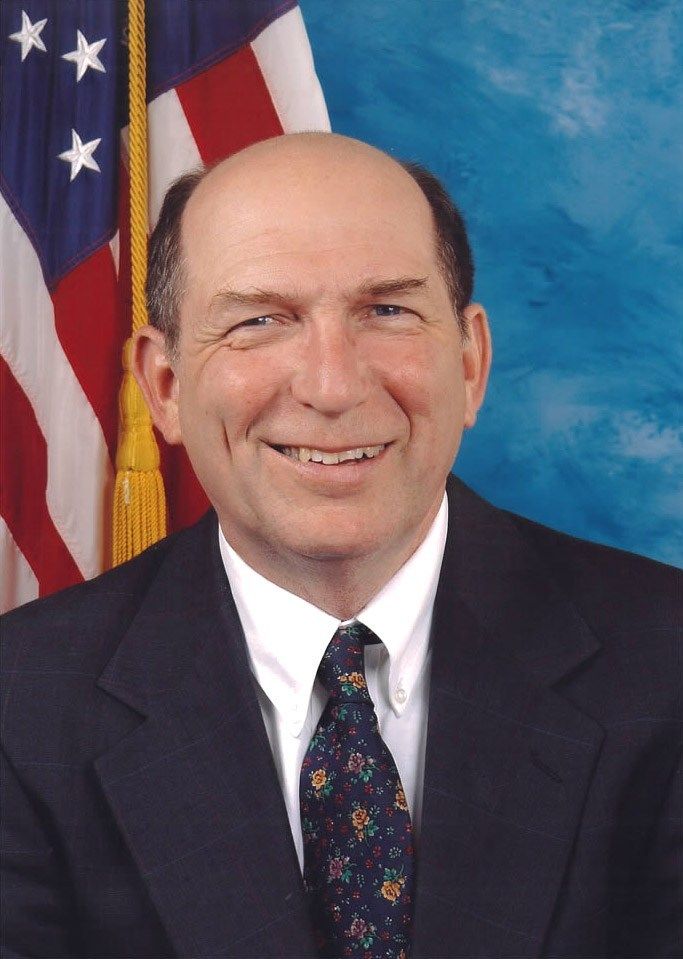This article was republished with permission from WTOP’s news partners at Maryland Matters. Sign up for Maryland Matters’ free email subscription today.
This content was republished with permission from WTOP’s news partners at Maryland Matters. Sign up for Maryland Matters’ free email subscription today.
When Congress passed landmark gun violence prevention legislation known as the Brady Bill back in 1993, two of Maryland’s four U.S. House Republicans were among the 54 GOP lawmakers who voted to send the bill to President Clinton’s desk.
Maryland Republican Reps. Wayne T. Gilchrest and Constance A. Morella joined all four Maryland House Democrats at the time to endorse the bill, which passed after a long opposition campaign by the National Rifle Association.
Gun control politics have shifted dramatically in Maryland and across the country over the past 26 years. Democratic lawmakers have become increasingly willing to support tougher federal gun control laws. And congressional Republicans have repeatedly blockedcongressional efforts to restrict access to firearms after recent mass shootings.

In February of this year, when the U.S. House approved an even tougher background check bill for firearm sales, Maryland’s lone Republican congressman, Andrew P. Harris of the 1st District, voted against it, as did most of his caucus. Only eight House Republicans voted for the bill.
“Shallow political posturing does nothing to address the actual causes of gun violence or prevent crime,” Harris said of the bill.
Maryland lawmakers will likely vote again soon on several other high-profile gun bills. House and Senate leaders have vowed to address gun violence following the back-to-back massacres in El Paso, Texas, and Dayton, Ohio, earlier this month.
In the wake of those recent shootings (where 31 people were killed and another 53 were injured), gun control advocates demanded that the Senate return immediately to vote on H.R. 8.
But Senate Majority Leader Mitch McConnell (R-Ky.) refused to call lawmakers back early, saying that senators would address the issue after members of Congress are slated to reconvene on Sept. 9.
House lawmakers, however, are returning to Washington, D.C., ahead of schedule to vote on even more gun control bills. House Judiciary Chairman Jerrold Nadler (D-N.Y.) announced his panel will meet next Wednesday to vote on several more bills aimed at restricting access to firearms.
The committee plans to vote on bills that would ban high capacity ammunition magazines, incentivize state “red flag” laws that allow courts to seize firearms from people deemed threats to themselves or others and prohibit people convicted of misdemeanor hate crimes from possessing firearms.
Rep. Jamie Raskin (D-Md.), who serves on the Judiciary Committee, will be central to the debate.
After past efforts to advance stricter background checks have failed due to GOP opposition, Raskin said it’s unclear whether the outcome will be different this time around.
“The Republicans are definitely counting on public outrage dissipating every day as we move further away from the massacres,” he told Maryland Matters this week in an interview. “That’s the general pattern, usually within a day or two, the president says something about the importance of doing a background check, then he gets a call from the NRA and he withdraws that.”
President Trump suggested a willingness to support stricter background checks after the El Paso and Dayton shootings, but he appeared to reverse course after meeting with the head of the NRA, multiple news outlets reported.
Largely, the public supports more gun control. An NBC/Wall Street Journal surveyconducted this month showed that 89% of Americans wanted Congress to expand background checks to all firearm sales and 76% back “red flag” laws.
“It seems clear that popular protest and pressure are going to be the key force here and there’s no telling whether it’s going to work,” Raskin said.
GOP reluctance
Despite increased pressure from Democrats and gun safety advocates, it’s far from certain that lawmakers will enact significant legislation.
Even as some congressional Republicans say they’re eager to pass gun control bills, others appear reluctant to back sweeping reforms.
Harris suggested in February that he doesn’t think universal background checks are what’s needed to curb gun violence.
“We already have universal background checks in Maryland — and it has done nothing at all to stop the out-of-control number of murders in Baltimore committed by using handguns,” he said.
And efforts to find bipartisan compromise on background checks have failed in recent years. Sens. Pat Toomey (R-Pa.) and Joe Manchin (D-W.Va.) authored background check legislation that the Senate voted down in 2013 and again in 2015. Toomey has said he’s looking to revive the effort when lawmakers return next month and he thinks he’s got a better chance at getting it passed this time.
Christian Heyne, vice president of policy at Brady United, a gun control group, expects Republican politicians to suffer at the polls if they don’t engage on meaningful gun violence reforms.
“The political tide is dramatically shifting and I think for the better,” Heyne said.
Trump and congressional Republicans have indicated a willingness to pass a federal law to incentivize state “red flag” laws, although Democrats suggest that’s not enough.
Senate Minority Leader Charles Schumer (D-N.Y.) called such legislation an “ineffective cop out.” He said Democrats “are not going to settle for half-measures so Republicans can feel better and try to push the issue of gun violence off to the side,” The Hill reported.







